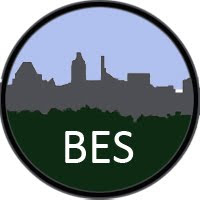This research was supported by funding from the NSF Long-term Ecological Research (LTER) Program. This material is based upon work supported by the National Science Foundation under Grant Nos. DEB-1637661 and DEB-1855277. Any opinions, findings, and conclusions or recommendations expressed in this material are those of the author(s) and do not necessarily reflect the views of the National Science Foundation.
The Baltimore Ecosystem Study has been a National Science Foundation Long Term Ecological Research (LTER) site since 1998. Visit other LTER sites.
 |
 |

What is a Metacity?
Metacity: Beyond Mere Size Hong Kong. Copyright Brian McGrath. The term “metacity” was introduced by the United Nations as a way to capture the increasing size of the largest urban […]
Why Does BES Have Rules for Running Meetings?
There are two answers to this question. First, a wise man, Prof. M. Gordon “Reds” Wolman, suggested at our first meeting that we needed some rules to guide how such […]
A Presentation on BES III: Research, Education, and Engagement from the Sanitary to the Sustainable City
By now, friends and members of BES are familiar with the new research strategy we have developed to guide our third grant cycle. A new six year grant is an […]
Where is the Baltimore Ecosystem Study (BES)?
BES as Place Why in Baltimore of course? But that’s not a complete answer. Our research, education, and community engagement are of course focused on the five-county conurbation that is […]
Swamps and the City: Part II
A special guest post by Prof. Grace S. Brush, Johns Hopkins University. My last post discussed how the role of people in shaping the swampy systems of the Everglades had […]
Swamps and the City
Laura A. Ogden, of Florida International University is an anthropologist and Co-Principal Investigator of the Florida Coastal Everglades LTER. She is also a regular collaborator with the BES community and […]
Natural Experiments of History
The title of this essay is the same as a book edited by Jared Diamond and James A. Robinson, published in 2010 by Harvard University Press. The book explores the […]
A Moving Field Guide
Seeing the World Science starts with noticing the world – what plants and animals do, the changes in vegetation over time – or in wondering what’s going on beneath the […]
Adaptive Explanations in Cities
Cities are hard to explain, no doubt. Within and between cities, social capital, historical contingency, economic resources, and the deployment of power are well known explanatory variables. One kind of […]
Complexity: The Hidden Nugget in Jane Jacobs’ Book
Well, perhaps it’s unfair to call it hidden. It is after all the topic of the final chapter, entitled “The Kind of Problem a City Is.” In that chapter, she […]